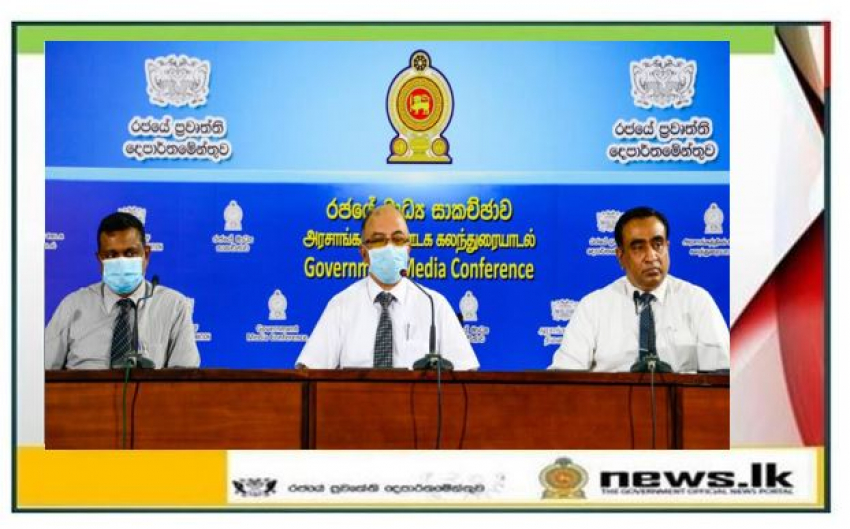Specialist Dr. Ananda Jayawickrama says the latest data proves the spread of the pandemic has been significantly reduced due to the Covid vaccine.
He mentioned this at a special media briefing held today (08) at the Government Information Department regarding the role of the media in the active vaccination drive in Sri Lanka.
He further explained prior to the vaccination process, a committee appointed by the National Drug Regulatory Authority had conducted research and recommended its safety.
Dr. Ananda Jayawickrema assured that the vaccine reduces the risk of infection in a person and reduces the risk of severity and the risk of death.
He further mentioned that he first received the vaccine to instill confidence in the public about the vaccine and because he is a member of the committee appointed by the National Drug Regulatory Authority.
Deputy Director General of Health Services, Dr. Hemantha Herath emphasized, 20% of Sri Lankans will be vaccinated under the COVAX facility and the government will purchase
18 million doses for 9 million people in future.
He added that 161,773 people have been vaccinated so far and a major portion of those who are scheduled to be vaccinated in the first phase have been vaccinated, resulting in a lessening in the number of daily immunizations.
Dr. Palitha Karunapema, Director of the Health Promotion Unit, stated that journalists have played a remarkable role in providing information to the public on controlling the spread
of the epidemic.
Elaborating the responsible role of the media in providing accurate information on COVIC-19, he highlighted the necessity to convince the public that the vaccine was given as a
suitable vaccine for Sri Lanka upon considering the recommendations of the World Health Organization. Additionally, as certain parties have questioned when they will receive the
vaccine and whether the vaccine will be delayed, the media should make the public aware of how to prevent the spread of the disease by vaccinating all those who are eligible to be vaccinated.
Although the vaccine may cause only minor side effects, information on such reported side effects will be acquired by the Ministry of Health and the Epidemiology Division jointly
in the future and it is crucial for the media to provide the public with only factual information obtained from verified sources.
Dr.Karunapema added that, The World Health Organization (WHO) assures that there is a lot of research being done around the world on the vaccine, and that it is important for
the media to report on the totality of all research without highlighting just one research result or spreading fake news on social media.
On another note, Director General of the Department of Government Information, Nalaka Kaluwewa mentioned even though COVID vaccine is a good weapon to fight the spread
of the pandemic, the media should always remind the public to maintain the social distance, continue hygiene practices and wear facemasks.
The health authority believes that stocks of vaccines will arrive in Sri Lanka by the end of February to begin the second phase of the vaccination process. Priority of immunization
will depend on the number of vaccines received, yet, priority will be given to those suffering from the virus, the elderly and those who directly contribute to the country's economy.
The attention of the Minister of Mass Media has been drawn to provide vaccinations to journalists. Teachers are identified as a priority group. Health officials also believe that in
the second phase, two or three groups will be able to be vaccinated in parallel.
Although the second dose is currently given 4 weeks after the first dose, the latest evidence suggests that the second dose may be more effective 12 weeks later, which may
increase immunity. Therefore, it is possible to extend the duration of the second dose to 12 weeks in the future.
Many people are wondering how long the immunization will last and although research is still underway to give a definitive answer, health officials believe the vaccine-immunity will last for about a year.




















